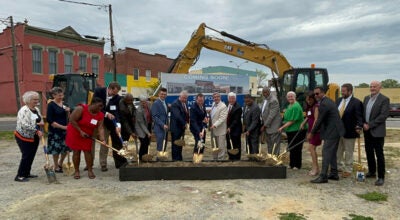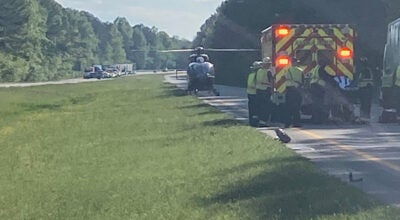Holland Road second on HRTPO wish list
Published 11:13 pm Friday, March 22, 2013
Regional policymakers began preparing for their first meaningful influx of transportation cash in many years on Thursday when the Hampton Roads Transportation Planning Organization met to discuss funding.
A transportation funding bill passed in the General Assembly this year could generate more than $900 million in regional revenue alone in Hampton Roads in the next five years, Hampton Roads Planning District Commission Executive Director Dwight Farmer told the gathering Thursday in Chesapeake.
The future of Suffolk’s Holland Road widening project hangs in the balance — the $72 million project currently is the No. 2 priority in the urban roadway system highway project category.
The HRTPO approved the prioritization document and the objective formula that scores the projects about a year ago. Farmer
recommended on Thursday that the board work the plan.
“This is something you should be proud of,” he said. “I’m going to recommend you stick to this document. We’re going to follow an objective process.”
Preliminary engineering already is under way on the Route 58 widening, said Camelia Ravanbakht, deputy executive director of the HRTPO. More money from various sources is expected for the next five years, but even planned funding brings the project less than halfway to being fully paid for.
An HRTPO retreat planned for May will allow the board to go into more detail on which projects it wants to fund with its cash.
“I guess we just have to wait and see how the board’s going to decide,” Ravanbakht said. “It’s moving in the right direction — it’s on the list.”
But Farmer isn’t counting any chickens before they hatch. He said Thursday he would wait until after the General Assembly’s veto session to make final determinations on the amount of money that could be flowing to Hampton Roads.
The General Assembly’s transportation bill included a number of new funding mechanisms, including a regional 0.7-percent sales tax — for a total sales tax in Hampton Roads of 6 percent — and a regional tax on the wholesale price of gasoline.
Statewide, it eliminated the at-the-pump gasoline tax and slapped a levy on wholesale fuel, while implementing a $100 registration fee for alternative-fuel vehicles, increasing the motor vehicle sales tax and hiking the statewide sales tax to 5.3 percent.






